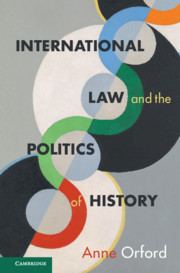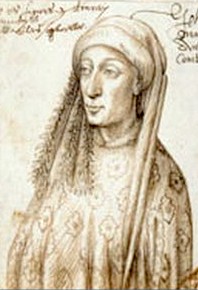Brill is publishing the edited collection ‘Politics and the Histories of International Law’
ABOUT THE BOOK
What are the implications of writing the history of legal issues? Eighteen authors from different legal systems and backgrounds offer different answers, by examining the history writing on issues ranging from slavery over the use of force to extraterritorial jurisdiction. Contributions show how historiography has often distorted or neglected regional cultures and suggest alternative methods and approaches to history writing. These studies are highly relevant for current international relations in which the fight over master narratives is especially fierce among governments, in different academic fields, and also between governments and academics.
Contributors are: Jean d'Aspremont, Julia Bühner, Emiliano J.Buis, Maria Adele Carrai, Jacob Katz Cogan, Ríán Derrig, Angelo Dube, Michel Erpelding, Etienne Henry, Madeleine Herren, Randall Lesaffer, Anne-Charlotte Martineau, Parvathi Menon, Momchil Milanov, Hirofumi Oguri, Gustavo Prieto, Hendrik Simon, Sebastian Spitra, and Deborah Whitehall.
ABOUT THE AUTHOR
TABLE OF CONTENTS
Politics and the Histories of International Law: An Introduction
Anne Peters, Raphael Schäfer and Randall Lesaffer
Part 1: International Law and Vulnerable Groups
1 Strength through Diversity? The Paradox of Extraterritoriality and the History of the Odd Ones Out
Madeleine Herren-Oesch
2 The Politics of Writing on the History of Slavery in International Law
Anne-Charlotte Martineau
3 Edmund Burke and the Ambivalence of Protection for Slaves: Between Humanity and Control
Parvathi Menon
4 One Hundred Years of Soli(dari)tude: The Creation of the Refugee Regime and the Politics of Humanitarianism
Momchil Milanov
Part 2: The Use of Force Discourse in a Historical Perspective
5 Theorising Order in the Shadow of War: The Politics of International Legal Knowledge and the Justification of Force in Modernity
Hendrik Simon
6 The Road to Collective Security: Soviet Russia, the League of Nations, and the Emergence of the ius contra bellum in the Aftermath of the Russian Revolution (1917–1934)
Etienne Henry
7 Three Wartime Textbooks of International Law
Deborah Whitehall
Part 3: Regional and Cultural Variations of International Law
8 The Politics of History in the Late Qing Era: William A. P. Martin and a History of International Law for China
Maria Adele Carrai
9 Mixed Claims Commissions in Latin America during the 19th and 20th Centuries: The Development of International Law in between Caudillos and Revolutions
Gustavo Prieto
10 The Forgotten Continent? A South African Perspective on the Development of African International Legal Thought
Angelo Dube and Lindelwa Mhlongo
11 International Law and the European Court of Justice: The Politics of Avoiding History
Michel Erpelding
Part 4: The Looming of the Past over the 20th Century
12 Civilisation, Protection, Restitution: A Critical History of International Cultural Heritage Law in the 19th and 20th Century
Sebastian M. Spitra
13 International Law, Science and Psychology in the New Haven School
Ríán Derrig
14 Histories Hidden in the Shadow: Vitoria and the International Ostracism of Francoist Spain
Julia Bühner
Part 5: New Methods and Approaches
15 Turntablism in the History of International Law
Jean d’Aspremont
16 The Politics of Anti-Politics: Historiographies of International Law and the Paradox of Antiquity
Emiliano J. Buis
17 Combatting Naïve Positivism by Quellenkritik: Lassa Oppenheim and His Ascertainment of Customary International Law
Hirofumi Oguri
18 A History of International Law in the Vernacular
Jacob Katz Cogan
Index
More info here
(source: ESCLH Blog)









/https://public-media.si-cdn.com/filer/8e/e4/8ee4c296-e64b-493a-adc9-0957e91170cf/naid-81145643.png)



